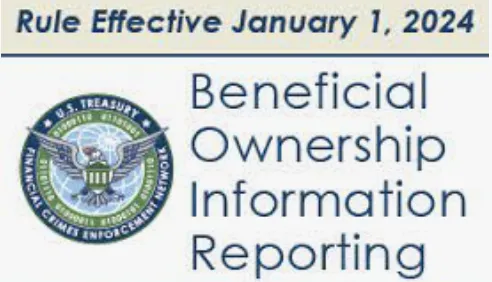Key Takeaways
- The taxpayer can’t pay all taxes at once but can file a form to set up an IRS Installment Plan.
- This can help the person who can not come up with a lump sum amount and is having trouble paying taxes.
- Installment plans must be finalized within 72 months or less.
- If you owe $50,000 or less tax, it’s possible to avoid Form 9465 and consider an online payment instead.
- In either scenario, interest and fines on the overdue sum will accrue until you pay it off.
Taxes owed can sometimes become higher than we anticipate, making paying taxes complicated and difficult. While the reality is less than ideal, the IRS fortunately offers payment solutions for a variety of circumstances.
Considering the high interest rates and penalties that the IRS charges for past due amounts, it is always in your best interest to settle the amount of taxes owed as soon as you can as your first option. While it may seem counterintuitive, sometimes it’s cheaper to take out a loan from a bank or credit card company to pay the due tax. If you can believe it, often those interest rates are much lower than the IRS’.
If a loan is out of the question, the IRS offers different types of payment plans for taxpayers who are having difficulties paying taxes. The IRS determines who can qualify for each plan depending on each business’ specific tax situation.
Taxpayers may enter into a short-term agreement with the IRS, gaining 120 days to settle the due amount. They can complete applications for the short-term agreement online or over the phone. If a taxpayer successfully applies for a short-term agreement with the IRS, they do not pay set up fees.
Aside from short-term plans, the IRS also offers an installment agreement, also known as a long-term plan. Under the installment agreement, a taxpayer agrees to pay the IRS a monthly fixed amount, and that monthly amount generally depends on the total amount of tax owed.
IRS Installment Plan

The IRS installment plans can help you to pay your taxes if you don’t have the cash. The IRS’s short-term tax payment plan gives up to 180 days to pay their dues. The interest will be collected on what you owe, and it carries a failure-to-pay fine of 0.5% a month until the balance reaches the entire dues.
You can get on an installment plan if you’re not going to have the amount within six months, you’ll have to pay some additional fees. If you get online registration for automatic monthly withdrawals, you will be charged a $31 set-up fee. If you apply for direct debit over the phone, in person, or by mail, you will be charged a $107 fee.
You can also select the regular payment-by-yourself option, but if you register online, the charges will be $130, or through the mail or in person, the fee will be $235. With a long-term installment plan, you can set your monthly installment, but you have to select an amount that enables you to clear your taxes in 72 months.
Apply For An Offer In Compromise
If you are not worried that you won’t have the money to pay your taxes, you can apply for an Offer in Compromise (OIC), a request to resolve your tax or less than the sum you owe. The IRS considers different facts when reviewing OICs, including your expenses, salary, and ability to pay, but it’s rare to get approval.
If your request is accepted, you can pay it by your choice, whether in one lump sum amount within five months or periodic payments over 24 months.
Credit Card
While paying taxes with your credit card can help you avoid IRS fines and interest, it can also lead to higher costs due to annual percentage rate (APR) charges and potentially deeper debt. For a 0% APR introductory offer, you can request a credit card. Some people have no interest for over a year on purchases, so you can settle the debt.
However, this plan is only advised if you think you can pay off the amount before the introductory period expires. Otherwise, you will have to pay huge interest.
Personal Loan
It might be better to have a personal loan than to get approval for a 0% APR credit card if you don’t have excellent credit. However, compare the charges with what would be paid through the IRS installment plan before applying so you know if you are making a sound financial decision. Make sure to consider how long it would take to settle your bill.
Residence Equity
If you don’t have a residence, you can hold your home equity to get cash with a home equity line of credit (HELOC). The prime rates on HELOC loans are lower than for personal loans and credit cards mostly. But only consider a HELOC loan if your tax is at least five figures, as they typically start at $10,000.
Installment Agreement

If a loan is out of the question, the IRS has various payment plans for taxpayers who are having difficulties paying their taxes. The IRS determines who can qualify for each plan depending on each business’ specific tax situation.
Taxpayers may enter into a short-term agreement with the IRS, gaining 120 days to settle the due amount. They can complete applications for the short-term deal online or over the phone. If taxpayers successfully apply for a short-term agreement with the IRS, they do not pay set-up fees.
Aside from short-term plans, the IRS also offers an installment agreement, also known as a long-term plan. Under the installment agreement, a taxpayer agrees to pay the IRS a monthly fixed amount, and that monthly amount generally depends on the total amount of tax owed.
There are three types of installment agreements available:
Guaranteed Installment Agreement
The guaranteed installment agreement is available for taxpayers who owe $10,000 or less. Qualified taxpayers should agree to pay the full amount of tax due in three years.
To qualify, all the following conditions should be met:
- All the taxpayer’s returns are filed and no return is filed late or paid late
- No other installment agreement has been entered by the taxpayer in the last five years
- The taxpayer agrees to file their future tax years returns and pay the corresponding tax due on time
Streamlined Installment Agreement
The streamlined installment agreement is a good option for taxpayers who owe $50,000 or less. The payment term for this installment is six years or 72 months.
The streamlined installment agreement is a part of the Fresh Start initiative, which helps a person to pay back their taxes. It benefits the person, and these significant benefits are for maximum dollar criteria and terms for harmony. Suppose the maximum dollar for SIA has been increased from $25,000 to $50,000, and the maximum term has been leveled from 60 to 72 months.
Non-Streamlined Installment Agreement
The non-streamlined installment agreement is for those whose tax liability is over $50,000. This is suitable for taxpayers who need payment terms to be longer than six years. Entering into this type of installment agreement with the IRS usually requires the help of a tax professional.
While it’s never ideal to pay more in taxes than we initially expected, it can be reassuring to know the IRS has flexible payment options for individuals and business owners to suit their specific needs. Regardless of the situation, there’s always a way to remain empowered and in control of your taxes.
Can Cleer Tax Help Me With Paying Taxes On Time?
Absolutely! At Cleer Tax, our dedicated team is committed to addressing the distinct requirements of your business.
We provide comprehensive tax advisory services tailored to your specific needs, covering every aspect of compliance and optimization – including helping you with paying taxes in a sustainable manner for your businesses needs. Our goal is to ensure that you capitalize on every available opportunity, leaving no stone unturned when maximizing your tax benefits and minimizing any potential liabilities.
Cleer provides Corporate Income Tax Packages encompassing federal and state income tax filings for a hassle-free experience. We also offer all-inclusive bookkeeping packages, which include your monthly statements plus your federal and state tax returns.
If you need any help reducing your tax liability, schedule a consultation, or feel free to contact us.






